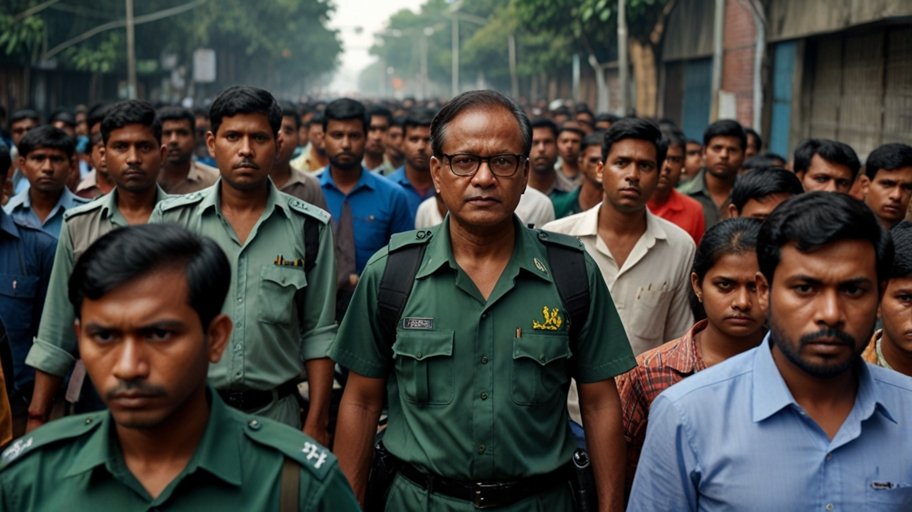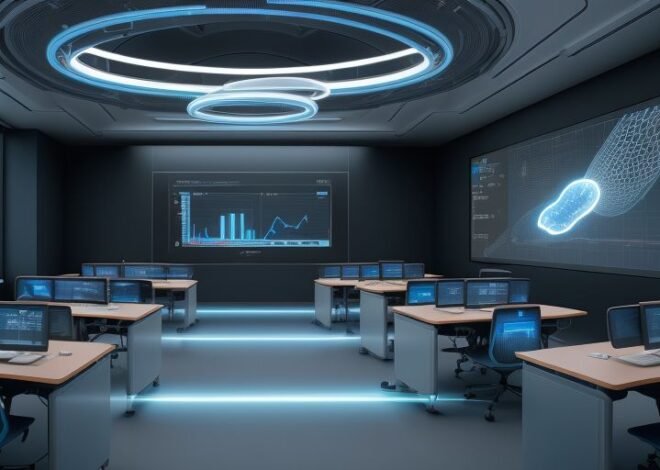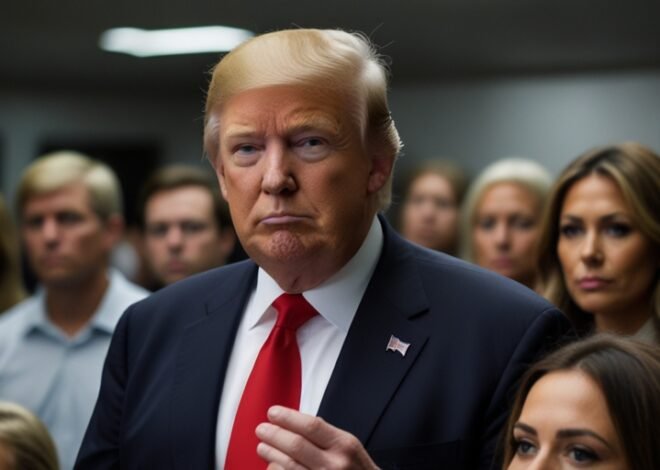
Bangladesh Arrests 1300 In Crackdown
“Operation Devil Hunt” is a widespread swoop that is responsible for the detention of 1,300 persons related to the ousted regime of Sheikh Hasina. It all began on Saturday when fake threats alarmed them to the extent of “a child’s voice appearing in the air.” The entire facility and fake staff guided everyone to the emergency exits; several people could not even wait to go out and roll down the slides. Jahangir Alam Chowdhury, the minister of the interim internal ministry, has promised that the operation “will continue until we uproot the devils” are to be summarized.
This onslaught was the result of a string of violent displays earlier in the month, like the forced eviction of buildings belonging to the Hasina family. The case involving protestors who had hung the portrait of Sheikh Hasina in the exhibition room of the museum was solved; five teenagers were being questioned about it. On February 5, the protestors inaugurated the building with the construction of a platform and installation of the portrait of the former president, Sheik Mujibur Rahman, and later, the work of the museum and the house owned by her father was demolished by a bulldozer. These casualties are the effects of the struggle against the anti-Hasina policy of the opposition between the freedom fighters and the Awami League party.
Hasina is held responsible for the exile of Nobel Peace Prize Laureate and Interim President Ynus from the country. The government refers to the operation as one that was aimed at fear screening after “the youth, who are part of a group of Students Against Discrimination, attacked by the gangs decamped from the fallen regime, got injured.” During the spring of 2019, the Students Against Discrimination group members carried out demonstrations in the dh-immediate- Bolt to demand the withdrawal of their names from deprivation lists. They received help from some government members who are a part of their leadership now.
In the course of the operation, some people are worried that the operation is going to be too broad and people’s civil liberties might be hurt. Shafiqul Alam, the press advisor to interim leader Yunus, claims that the government has formed a special “command center” team that is responsible for monitoring the actions of the law enforcement agencies. On the other hand, some legal experts think that the operation might be an exaggeration of their authority. Supreme Court lawyer Snehadri Chakravarty described the crackdown as “eye-wash,” and he cautioned that mass arrests run the risk of fetching up innocent people without ever dealing with the real problems you have.
Since the student-led uprising in August 2024, when Sheikh Hasina was ousted from power, the political situation in Bangladesh has been unstable. The 77-year-old ex-prime minister, who was challenged by an arrest warrant on a trial for crimes against humanity which he never came to court for, is believed to be hiding somewhere in India, the neighboring country. Hasina’s possible appearance in a Facebook broadcast from exile was the catalyst for the recent protests and thus emphasized the continuing stalemate and divisions in the country.
The interim government is confronted with the difficult task of combining the re-establishment of order and the rooting out of underlying political and social issues that had resulted in the ouster of Hasina. The arrests conducted under Operation Devil Hunt have led to speculations and doubts about the government’s way of confronting political opposition and its treatment of dissent. Disagreeing ones put forward the idea that such mass unconstructive apprehensions would only further divide people rather than promote conciliation and peace.
International observers are keeping a very close eye on Bangladesh’s affairs, suspecting the potential of human rights violations and the influence on the democratic process. The United Nations and a number of human rights organizations have demanded compliance with the law and respect for due process during the ongoing ruling crackdown. The concerns are around the impact of the action to be misused to target political opponents and suppress presentable critique instead of actually targeting individuals engaged in violent activities.
The crackdown also came as a much-needed spotlight to show the marked political gap among the public in Bangladesh. Defenders of the former regime allege that the military endeavor is politically biased and is implemented by the temporary government with the aim of securing power. Conversely, those who were the proponents of the revolutionveralso view the military operation as a needed step in the prevention of a resurgence of the previous administration’s power and to account for past actions that were done.
Although Operation Devil Hunt is continuing, the long-run impacts on the political stability and future democracy of Bangladesh can not be predicted. The hallmark of the interim government will be the ability to enforce the law and, at the same time, not limit the political rights and freedoms of its citizens. The upcoming weeks and months are the next go-to calibrators of whether this crackdown gets our fingers crossed from time to time or the further conviction of this country that has only one true confrontation, which is the violence in the political arena.


